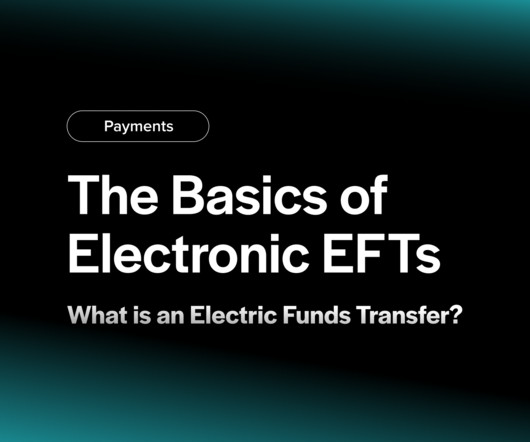The Basics of Electronic EFTs: What is an Electric Funds Transfer?
EBizCharge
JUNE 3, 2024
Delays can also occur based on the institutions involved and if a transfer is initiated late in the day or after the end of a business day. What is the Electronic Funds Transfer Act (EFTA)? The Electronic Funds Transfer Act (EFTA) is crucial for consumer protection in electronic payments and banking.












Let's personalize your content